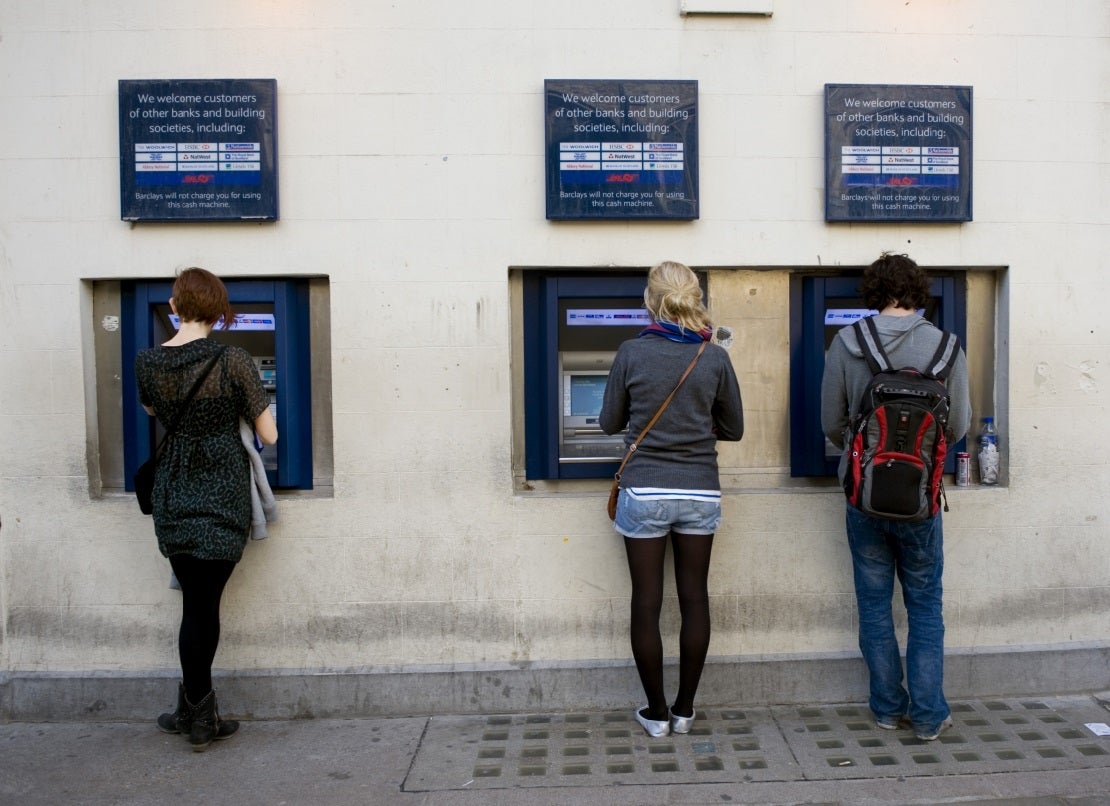Will the Uberisation of personal finance kill off banks altogether?
If this is the way things go, it would feel more like evolution rather than revolution


The next industry to be “Uberised” will surely be finance. But which bits of it? And how far will digital disruption go?
It’s a bundle of questions that everyone involved in the financial service industry is pondering over, with – unsurprisingly – few clear answers. The spectre of Uber disrupting the taxi trade, and Airbnb doing the same for the hotel business, has sent a chill down their spines, but this is just the beginning. Maybe big data will replace credit analysis, so that lenders can tell from the data whether a borrowing is likely to repay. If it did, peer-to-peer lending might grow to such an extent that the core business of banks would be bypassed altogether.
But while there is as yet no clarity – how could there be? – it is becoming possible to glimpse some elements of the new financial model. Disruption was one of the themes of the latest McKinsey Quarterly, the consultancy firm’s journal that identifies and comments on new business ideas. One article noted that the digital revolution was already chipping away at the most profitable bits of banks’ business. It said most digital innovators did not want to get into banks’ core business because of the high cost of capital and of regulation, and the low margins. Instead they wanted to get into the fee business – services for which the banks charged fees, such as advice. Return on equity for these services was 22 per cent, vis-à-vis only 6 per cent for services such as making loans.
Another article in the journal, by Credit Suisse chair Urs Rohner, observed that the greatest areas of disruption so far had been in payments and lending. In payments there are a lot of competitors, including PayPal, Apple Pay, and so on. In lending, the disrupters had been less successful. Lending Club, the US company that is brand leader in peer-to-peer lending, is in turmoil. Rohner argued that the best way forward both for the established institutions and newcomers to go into partnership. He didn’t quite put it in these terms, but the idea is that customers would get the benefits of the efficiencies the disrupters could bring, but with the safety-net provided by the incumbents.
My own perspective on this was sharpened last week by an evening chatting with executives of a large European bank. A number of things emerged. The starting point was that people will always need financial services, as they have for the past thousands of years, really ever since the early days of civilisation. The ageing societies of the developed world would need more such services, not less. However, everyone agreed that those services were far too expensive. This is partly the fault of regulation, for the more regulation and stronger capital requirements placed on the industry were paid for by customers, not the governments that imposed those costs. But it was also the fault of the industry, because its costs were far too high. It employed too many people and paid those people too much money.
Not much could be done about regulation, and the industry would be in the doghouse for some time to come. Eventually the mood would change, but everyone agreed that there was no evidence of that yet. People did connect low interest rates with official policy, rather than blame the banks, but they didn’t see that they, the customers, were the people who ultimately had to bear the cost of regulation or capital requirements.
As far as technology was concerned, that was more a saviour than a threat. This was particularly evident in the booming area of wealth management. Fees were too high, and very low interest rates exacerbated the problem. People might accept a 1 per cent charge for fund managers if those funds were yielding 5 to 6 per cent, the long-term real average return on global equities. But if the funds were yielding less that 1 per cent, then paying people to lose money made no sense at all.
So somehow banks had to use cheap computing power to replace expensive people. You would still need people to market services but the actual production of the service, say a pension plan, could be largely automated. Because it would be cheaper to run, it would offer a much better deal to savers, in this instance a much better pension for the amount of money put in. If the bank, or fund manager, could not do that, people would make their own decisions.
So you could envisage a world where people run their own basic financial services, rather as people book their own airline seats if it is simple point-to-point flight. But if they wanted something more complicated, the equivalent of a package holiday, they would get someone else to do this for them. That someone might be an established financial institution, or it might be an incomer. Or it might be a partnership between the two, as Rohner suggests. Either way, the industry will be smaller.
If this is the way things go, it would feel more like evolution rather than revolution. But then in a way Uber and Airbnb are evolution. They have simply enabled people to use existing infrastructure – cars and bedrooms – more efficiently, and thereby increase the business. The total volume of financial services that people buy would go up, just as Uber has increased the number of riders in mini-cabs. But they would pay less for these financial services.
That is surely the best way to think of the next stage of the financial revolution. We will have cheaper financial services and we will have much more control over them, if that is what we want. But we will still have to make the decision as to whether we want to save more now and have a better pension in 30 years’ time. No app can make that decision for us. What I hope will happen is that technology will make more explicit the consequences of the decisions we take. So if there is to be a revolution in financial services, it will be more in our attitudes to those services, rather than in the services themselves.



Join our commenting forum
Join thought-provoking conversations, follow other Independent readers and see their replies